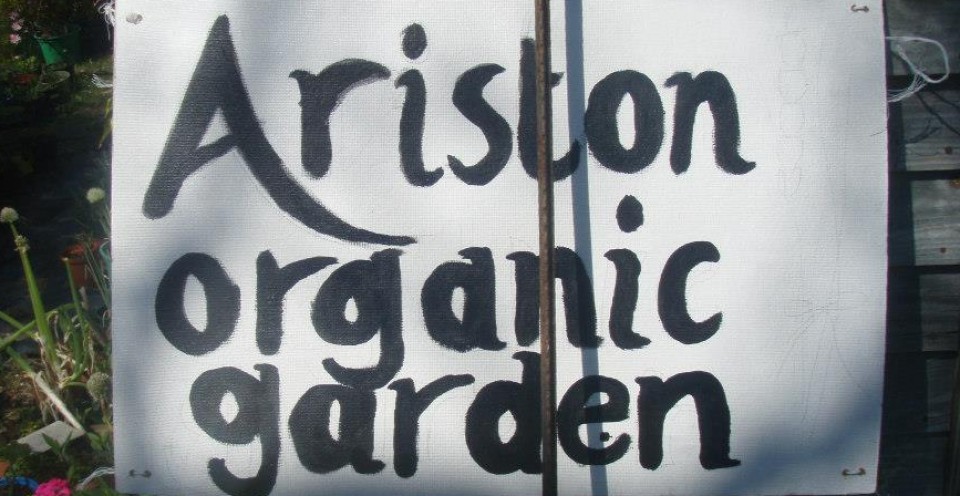
This is the Cassava which I found growing in one of the allotments. It has been in the ground for some time now and looks like it is flourishing.
Cassava (Manihot esculenta), also called manioc, yuca, balinghoy, mogo, mandioca, kamoteng kahoy, and manioc root, a woody shrub of the Euphorbiaceae (spurge family) native to South America, is extensively cultivated as an annual crop in tropical and subtropical regions for its edible starchy, tuberous root, a major source of carbohydrates. It differs from the similarly spelled yucca, an unrelated fruit-bearing shrub in the Asparagaceae family. Cassava, when dried to a starchy, powdery (or pearly) extract is called tapioca; its fermented, flaky version is named garri.
Cassava is the third-largest source of food carbohydrates in the tropics. Cassava is a major staple food in the developing world, providing a basic diet for over half a billion people. It is one of the most drought-tolerant crops, capable of growing on marginal soils. Nigeria is the world’s largest producer of cassava.
Cassava can be cooked in many ways. The soft-boiled root has a delicate flavor and can replace boiled potatoes in many uses: as an accompaniment for meat dishes or made into purées, dumplings, soups, stews, gravies, etc. This plant is used in cholent, in some households, as well. Deep fried (after boiling or steaming), it can replace fried potatoes, with a distinctive flavor. In Brazil, detoxified manioc is ground and cooked to a dry, often hard or crunchy meal which is used as a condiment, toasted in butter, or eaten alone as a side dish.
Ethnomedicine
- The bitter variety leaves are used to treat hypertension, headache, and pain.
- Cubans commonly use cassava to treat irritable bowel syndrome; the paste is eaten in excess during treatment.
- As cassava is a gluten-free, natural starch, its use in Western cuisine as a wheat alternative for sufferers of celiac disease is becoming common.
Alcoholic beverages made from cassava include Cauim and tiquira (Brazil), kasiri (Sub-Saharan Africa), masato (Peruvian Amazonia chicha), parakari (Guyana), nihamanchi (South America) aka nijimanche (Ecuador and Peru), sakurá (Brazil, Surinam).
News flash : SABMiller Cassava Beer Aims to Beat African Homebrews
-33.982832
18.469360

























 The potatoes which we have been growing in tyres have sadly been eaten, but on the bright side the beetroot is growing strongly.
The potatoes which we have been growing in tyres have sadly been eaten, but on the bright side the beetroot is growing strongly. The ZTL garden is also establishing well.
The ZTL garden is also establishing well.









 Zayaan’s garden is looking really interesting.
Zayaan’s garden is looking really interesting. The Lemon Tree is finally bearing better fruit.
The Lemon Tree is finally bearing better fruit.













 The Winter garden Tyre potatoes are needing the next tyre.
The Winter garden Tyre potatoes are needing the next tyre.

































 Now this is a surprise. This Butternut sprung up in the March “J” workshop garden. It must be courtesy of the Worm farm’s compost.
Now this is a surprise. This Butternut sprung up in the March “J” workshop garden. It must be courtesy of the Worm farm’s compost. Wow Bonnie’s Garden is really starting to grow. The tomatoes, pepper and chilies are flowering and starting to fruit.
Wow Bonnie’s Garden is really starting to grow. The tomatoes, pepper and chilies are flowering and starting to fruit.

 Bonnie’s Pak Choy and spinach.
Bonnie’s Pak Choy and spinach.



